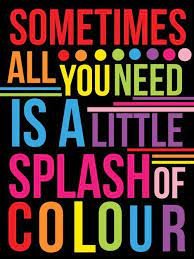Warming up Your Cold Calling - Tips for Authors
/As writers, we often have to make cold calls to contacts to find out about events, signings, and other marketing opportunities. Here are some suggestions that may help build relationships, so it’s not always a cold call. It’s much easier to talk to people you know and who know you.
Build Relationships with other writers in your area to share information about signings and events. It’s much more fun to do a group event than to sit alone in a bookstore.
Make a calendar of annual events and festivals with contacts and dates. This way you’ll know what’s coming and when registration is due. Make sure you add to it as you uncover new events.
Build relationships with booksellers in your area. Your first visit to their store shouldn’t be when you’re inquiring about doing an event. Frequent their stores and attend their events.
Know your local librarians. Many contact authors or writers’ groups when they are looking for speakers or they are hosting special events. My writers’ group has provided keynote speakers to Friends of the Library events, conducted writing workshops, supplied author panels, and wrote three scripts for “Murder at the Library.”
Volunteer to teach a course. This helps you make contacts. I often teach technology or social media classes at senior centers or for other chapters of my organization. And if I give out my slides or handouts, they’re branded with my logo and website.
Develop a collection of panel presentation ideas in case you need to create a proposal for an event. It’s good to have a wide selection that you can easily put together. I keep a short description and requirements (e.g. microphone, projector, etc.), along with a bank of questions that I can use for panel discussions. That way, I don’t have to create everything from scratch each time.
Think out of the box. Are there nonfiction hooks in your work that would be of interest to groups or businesses? Think about settings, hobbies, and your sleuth’s job. There are a lot of specialty groups on Facebook, and many have newsletters.
Book signings don’t have to be in bookstores. Think about themed gift shops, museums, and restaurants that may be possibilities. “Noir at the Bar” events happen in bars and restaurants.
Talk to everyone you know (just don’t make it the first statement when you introduce yourself) that you are a writer. I’ve done presentations at libraries, schools, bookstores, book clubs, and women’s groups because someone knew me.














